Health-conscious individuals recognize the importance of a balanced, whole-foods diet as a primary source of essential nutrients.
However, there are nuances to how we absorb those nutrients, influenced by factors such as digestion, genetic variations, medications, dietary philosophies, and others.
This is why people can develop nutrient deficiencies or insufficiencies, even if they’re eating a wholesome diet, and the symptoms can be confusing.
In this article, we’ll look at five nutrient deficiencies you might not know you have, including risk factors, symptoms of deficiency, available tests, and how to ensure you’re getting enough.
Nutrient Deficiency vs. Insufficiency: What’s The Difference?
The terms “nutrient deficiency” and “nutrient insufficiency” may sound the same, but they mean different things.
A nutrient deficiency is when you are not getting and do not have enough of a certain nutrient in your body.
Nutrient deficiencies typically cause more noticeable symptoms and can be detected through most laboratory work (although not all).
A nutrient insufficiency is when you’re trending toward a deficiency, but haven’t reached that stage yet.
Nutrient insufficiencies can cause symptoms, too, but they’re typically milder or even unnoticeable compared to a full-blown deficiency.
Insufficiencies can be detected through lab work, but they may be missed if nutrient levels fall within the “low-normal” range.
Additional lab work may also be required to diagnose an insufficiency, such as iron (more on this to come).
Many integrative health experts have tighter ranges for nutrient levels and take “low-normal” parameters seriously. They also know which tests to order to detect more subtle insufficiencies.
Ultimately, a nutrient deficiency is more serious than an insufficiency; however, both can cause symptoms and should be addressed.
What are the Signs of Nutrient Deficiencies or Insufficiencies?
The signs vary widely depending on what is lacking in the diet, and could be indicative of nutrient deficiencies or other issues.
For example:
- Fatigue is a common symptom of nutrient deficiencies such as vitamin B12, iron, and B-vitamins.
- Hair loss can be a symptom of iron deficiency or biotin deficiency.
- Sleeplessness and heart problems can be a result of a magnesium deficiency.
We’ll cover more details about specific symptoms of nutrient deficiencies in the next sections.
5 Nutrient Deficiencies You Might Not Know You Have
Nutrient deficiencies can be tricky because they often create symptoms that mimic other conditions, and most of them aren’t routinely screened for.
Many people have been mistakenly diagnosed with conditions, only to discover, upon seeking a second opinion, that nutrient deficiencies were causing their symptoms.
So it pays to know your facts!
The following are five nutrient deficiencies you might not know you have, plus information on what may cause them, how to identify them, and foods and supplement sources.
1. B12 Deficiency
B12 deficiency was once considered rare in people who ate meat and were under 65.
However, new research has shown that up to 26% of the global population is deficient in B12, and they’re not just vegetarians and vegans.
B12 insufficiency is also becoming more common and can lead to B12 deficiency if left unchecked.
What Causes B12 Deficiency?
B12 deficiency can affect anyone, regardless of diet, although vegans and vegetarians are at higher risk.
Other causes of B12 deficiency or insufficiency include:
- Age: The body’s ability to store B12 diminishes with age, and adults over 50 have higher rates of deficiency
- Certain autoimmune conditions, such as Celiac or Crohn’s Disease
- Gut health and digestive issues such as intestinal permeability (aka: leaky gut) or lack of hydrochloric acid
- Genetic variations, such as MTHFR and others, affect how the body metabolizes B12
- Certain medications, such as birth control pills, diabetes medication, or proton pump inhibitors
-
Thyroid health issues
As you can see, there are many risk factors for B12 deficiency, beyond diet.
Symptoms of B12 Deficiency
B12 deficiency or insufficiency can create a myriad of confusing symptoms.
It’s also not typically screened for at annual physicals, and full-blown symptoms can take years to surface.
Symptoms of B12 Deficiency May Include:
- Fatigue, mild, moderate, or extreme
- Breathlessness
- Cognitive health issues, including poor memory and brain fog
- Depression, anxiety, personality disorders, or mood swings
- Heart palpitations
- Digestive problems, such as diarrhea
- Premature graying of hair
- Frequent colds or compromised immunity
- Fertility issues
- Pregnancy issues
- Sleep issues
- Muscle cramping or weakness
- Blood sugar or metabolic issues
- Nervous system issues
- Tingly sensations in hands and feet
- Mouth or tongue soreness or a smooth tongue
- Nervous system ailments or damage
- Brittle hair or nails
- Skin issues
- Pale or jaundiced skin
- Loss of appetite
- Trouble walking
- Weight loss
- Blurry vision and other eye issues
These symptoms may not always be caused by B12 deficiency or insufficiency.
However, if you’re at higher risk, it may be worth having your levels checked.
How To Get Your B12 Levels Checked
B12 levels are typically checked using a blood test.
However, these tests aren’t always accurate due to the body’s ability to store B12, which can create the appearance of adequate levels.
A skilled doctor or practitioner will consider this along with symptoms and risk factors to make an accurate diagnosis.
Remember, if your levels are within the “low-normal” range, that could indicate insufficiency.
If your healthcare provider is not willing to discuss potential issues with low-normal labs, find a functional medicine or integrative health doctor who specializes in nutrient deficiencies.
These practitioners are trained to identify insufficiencies and can help you develop a plan.
Food Sources of Vitamin B12
The best sources of Vitamin B12 are whole, B12-rich foods, including:
- Organ meats, such as liver
- Red meats
- Poultry
- Fish and seafood
- Dairy products
- Eggs
Vitamin B12 also exists in small amounts in certain plant-based foods, such as:
- Nutritional yeast
- Fermented soy products, such as tempeh, may contain small amounts
- Fortified cereals, grains, and dairy-free milks
The Best Supplement Sources Of B12
Most healthcare practitioners recommend B12 supplementation for deficiencies and insufficiencies.
However, there is no one-size-fits all.
For example, anyone with a genetic variation, such as MTHFR, typically benefits from a co-enzymated or methylated form of B12, such as methylcobalamin or adenosylcobalamin.
Some healthcare practitioners also recommend these forms for individuals with gut health or autoimmune issues, so consult your practitioner for personalized recommendations.
If you don’t have these issues, a traditional cyanocobalamin may be recommended.
Learn more in: What Is a Coenzymated Vitamin? Exploring Coenzymated B12 Benefits
2: Magnesium Deficiency
Magnesium deficiency and insufficiency have become hot topics in nutrition and natural healing circles.
This essential mineral is involved in over 300 enzymatic reactions and is critical to hormonal balance, sleep, mood, bone health, cardiovascular function, metabolism, digestion, and much more.
It can also be lacking from a standard American diet, especially one devoid of leafy greens, legumes, fruits and vegetables.
What Causes Magnesium Deficiency or Insufficiency?
Magnesium deficiency can be caused by various factors, including:
- Age: Magnesium absorption can become compromised by up to 30% as we age
- Certain medications, such as birth control pills and proton pump inhibitors
- Eating a standard Western diet lacking in magnesium-rich foods, such as leafy greens, legumes, fruits, and vegetables
- Physical and mental stress
- Reverse osmosis water filters, which remove all minerals
- Pre-existing conditions
- Water softeners
- And other lifestyle factors
Eating a whole foods diet rich in magnesium-containing foods will help prevent deficiency and insufficiency.
However, it is wise to be aware of these other causal factors that may increase your body’s need for magnesium.
Symptoms of Magnesium Deficiency or Insufficiency
Since magnesium deficiency is difficult to test for (more on this in the next section), knowing the signs and symptoms is critical.
Some signs of magnesium deficiency or insufficiency include>
- Emotional distress or moodiness
- Menstrual cramping
- Muscle weakness, twitching, or cramping
- Digestive complaints, like constipation
- Heart problems, such as high blood pressure or irregular heartbeat
- Changes in personality
- Leg cramps
- Sleeplessness
- Inability to cope with stress
- Nervous system issues
- Pregnancy complications
- Tremors
- Fatigue
- Nausea
- Stiffness
- Numbness and tingling
- Seizures
These symptoms can also indicate other health issues, so talk to your doctor for individual advice.
How to Test for Magnesium Deficiency or Insufficiency
Unfortunately, no blood test can accurately determine magnesium levels.
This is because 99% of magnesium is stored in your bones, muscles, and soft tissues, making a blood test pretty irrelevant.
Therefore, determining magnesium status is typically done via symptoms, dietary history, and other lifestyle factors.
Best Sources of Magnesium
Magnesium is found in a variety of whole, unprocessed foods, including:
- Avocados
- Bananas
- Blackberries
- Dairy products
- Dark Chocolate
- Fiber-rich whole grains
- Leafy green vegetables
- Legumes
- Mango
- Nuts and seeds
- Papaya
- Plantains
- Potatoes with the skins on
Try to include several magnesium-containing foods in your diet daily.
Some practitioners also recommend a magnesium-rich snack before bed to promote healthy sleep and/or prevent muscle discomfort or restlessness.
Best Magnesium Supplements
With so many magnesium supplements available, it can be hard to know the best form for you.
We discuss this at length in: Magnesium Glycinate vs. Citrate: Which Form Is Best?, including comparing magnesium glycinate, citrate, and other forms, including magnesium oxide, magnesium aspartate, magnesium taurinate, and magnesium alpha-ketoglutarate.
Here are the cliff’s notes:
- Magnesium citrate is the most studied form, and may be most beneficial if you’re dealing with constipation
- Magnesium glycinate is considered more absorbable and gentler on the stomach. Therefore, this is often recommended for those in need of higher doses
Learn more in the article linked above and talk to your practitioner for individual recommendations.
3: Iron Deficiency
Iron deficiency is more common than you’d think, especially in women.
Per The World Health Organization, approximately 30% of non-pregnant women, 37% of pregnant women, and up to 40% of children have iron deficiency anemia worldwide.
Iron deficiency doesn’t happen overnight. Therefore, iron insufficiency is likely just as common, though not accounted for.
What Causes Iron Deficiency or Insufficiency
A lack of iron in the diet is the most commonly discussed cause. However, iron deficiency and insufficiency can be caused by various factors, including:
- A lack of dietary iron and/or other cofactors, such as vitamin C
- Cancer
- Certain medications and medical procedures
- Digestive health issues
- Environmental factors
- Excess consumption of iron-inhibiting foods
- Exercise
- Frequent blood donations
- Genetics
- Heart disease
- Inability to absorb iron
- Menstrual blood loss
- Pregnancy and giving birth
- Surgeries or injuries
Symptoms of Iron Deficiency:
The tell-tale signs of iron deficiency or insufficiency are fatigue and a lack of stamina.
Other symptoms include:
- Brittle nails
- Cardiovascular issues, such as changes in heartbeat, heart palpitations, or chest pain
- Cognitive issues such as brain fog and poor memory
- Cold hands and feet
- Dizziness or lightheadedness
- Hair loss
- Inflammation or soreness of the tongue
- Irritability
- Lack of stamina
- Pale skin
- Poor appetite
- Pregnancy complications
- Ringing in the ears
- Strange cravings for non-food items, such as ice or dirt.
- Overall weakness
Iron deficiency can also sneak up on you over time, so it’s important to check your levels if you notice any of these symptoms.
How to Get Your Iron Levels Checked
Iron levels are typically checked with a CBC (complete blood count) test.
However, this isn’t always accurate, as it only measures the amount of iron in your blood.
This is why many nutrition experts recommend a CBC and a ferritin test, which analyzes your stored iron levels.
This can be significant because ferritin stores and releases iron when your body needs it. Therefore, if your ferritin levels are suboptimal, that can negatively affect your iron levels.
The takeaway? Request both a CBC and ferritin test for the most accurate assessment of your iron levels.
The Best Food Sources of Iron
There are two types of iron, heme (animal-based) and non-heme.
Although your body can utilize both forms, heme iron is more readily absorbed than non-heme iron, so you may need to consume more non-heme foods and pair them with vitamin C-rich foods to increase your iron intake.
Sources of Heme and Non-Heme Iron Include
- Red meats
- Organ meats, like liver
- Pork
- Dark meat poultry: Chicken, turkey, ostrich, duck, quail
- Seafood
- Tuna
- Eggs
- Beans and legumes
- Blackstrap molasses
- Fortified foods, such as cereals and infant formula
- Jerusalem artichokes
- Kale
- Mustard Greens
- Nettles
- Prune juice
- Spirulina
- Soybeans
- Spinach
- Tofu
Best Iron Supplements
Iron supplements aren’t suitable for everyone, so it's essential to get tested and consult with your healthcare practitioner before starting a supplement regimen.
Iron toxicity from ingesting too much iron is common and can result in severe injury or death. It’s especially common in children.
Therefore, you must know your iron status before beginning a supplement regimen.
There are various sources and forms of iron supplements, some of which are gentler on the stomach than others.
Consult with your doctor or healthcare practitioner to determine the best form for you.
Related reading: 20+ Food & Supplement Sources of Iron for Omnivores, Vegans, & Everyone in Between
4: Iodine Deficiency
Iodine deficiency is more common than you’d think, affecting 30% of the global population.
Not getting enough iodine is significant due to its role in thyroid hormone function, which affects hormonal health, metabolism, brain development, pregnancy, and fertility, and many other aspects of healthy function.
What Causes Iodine Deficiency?
Iodine deficiency is predominantly caused by a lack of iodine in the diet.
The implementation of iodized salt has helped prevent this in North America.
However, many people still don’t eat enough iodine-rich foods to prevent deficiency and insufficiency.
Other risk factors for deficiency or insufficiency include:
- Pregnancy: Pregnant women and people need 50% more iodine
- Living far from the ocean at high altitudes: This results in very little iodine in the soil, which may contribute to deficiency or insufficiency
- Being vegan or vegetarian: Fish and dairy are good sources of iodine, so not consuming them increases the risk
- Not using iodized salt
Symptoms of Iodine Deficiency
Symptoms of iodine deficiency can range from dramatic to subtle, often go undiagnosed, and can include:
- Thyroid health issues, the most dramatic being goiter, which causes enlargement of the thyroid gland
- Infertility or fertility issues
- Hoarseness of voice
- Confusion or cognitive issues
- Scaly dry skin
- Puffy skin.
- Coarse thinning hair
It’s important to note that not all thyroid conditions respond well to additional iodine.
Talk to your doctor and don’t presume you need more because you have a thyroid problem.
Tests for Iodine Deficiency
Tests for iodine deficiency aren’t as accurate or straightforward as others.
An enlarged thyroid is a clear indication of deficiency and can be visually diagnosed.
For others, practitioners may order thyroid tests as thyroid hormone levels may be indicative of an iodine deficiency or insufficiency.
There are also urine and skin patch tests available, with varying levels of accuracy.
Consult your healthcare practitioner for personalized recommendations.
Best Food Sources of Iodine
Unlike other nutrients, iodine isn’t prevalent in many foods North Americans consume regularly.
Some of the best food sources of iodine include:
- Seaweed such as nori, seaweed snacks, kelp, and dulse
- Seafood
- Fortified dairy products
Best Iodine Supplements
Iodine supplements may not be necessary unless you have a confirmed deficiency or insufficiency, or if you are pregnant.
Iodine supplements made from whole foods, such as Irish Moss and Arctic Kelp, provide a safe source of iodine in these situations.
Note: Excessive iodine intake can lead to health issues. Therefore, consult your doctor or healthcare practitioner before starting supplementation.
5: Vitamin D Deficiency
Many doctors recommend routine vitamin D screenings to help prevent deficiencies.
However, deficiency or insufficiency is still common and mostly due to lack of sun exposure and indoor lifestyles, although diet and medications can also play a role.
Optimal vitamin D levels are critical for normal immune, hormonal, cardiovascular, bone, and nervous system function as well as healthy DNA expression, cellular health, and so much more.
What Causes Vitamin D Deficiency?
As mentioned previously, a lack of sun exposure is the most common cause of vitamin D deficiency or insufficiency.
Other causes or contributing factors include:
- Certain medications that deplete vitamin D or interfere with absorption
- Lack of vitamin D in the diet
- Location (areas that get very little sunlight)
- Digestive health issues
- Kidney disease
- Skin color (which can affect how your body absorbs vitamin D from the sun)
Ultimately, we spend a lot less time outdoors than we have in generations’ past, which is believed to be the main cause of deficiencies.
Symptoms of Vitamin D Deficiency
Symptoms of vitamin D deficiency can range from non-existent, to mild, to severe and can take years to show up.
Some symptoms include:
- Autoimmunity
- Blood sugar or metabolic issues
- Bone, joint, or muscle pain
- Cancers
- Cognitive health issues
- Depression, anxiety, or mood swings
- Frequent colds or compromised immunity
- Fatigue
- Fertility issues
- Nervous system issues
- Pain or weakness
- Pregnancy issues
- Tingly sensations in hands and feet
- Slow wound healing
- Weak bones
These symptoms don’t automatically indicate a deficiency and may be the result of other health issues.
Talk to your healthcare practitioner if you notice any of these signs or symptoms.
How to Check Your Vitamin D Levels
Many doctors and practitioners now recommend vitamin D serum testing at annual checkups.
The test is called a 25-hydroxy vitamin D test, also known as the 25-OH D test.
Keep in mind that normal ranges, especially low-normal ranges, may not be optimal ranges, so talk with your doctor or get a second opinion if you have concerns.
Best Sources of Vitamin D
Vitamin D is different from other nutrients in that the best source is the sun, and not foods.
Specifically, unfiltered natural sun exposure on bare, unprotected skin.
How much do you need? It depends on many factors including your skin color, location, health history, how much skin you expose, and time of year.
Generally 5-20 minutes of unfiltered, unprotected sunlight daily is a safe and effective way to get your dose of vitamin D.
Those with darker skin may benefit from 25-45 minutes, depending on the time of year.
However, some people may need more or less, so talk to your doctor for personalized recommendations.
Best Food Sources of Vitamin D
Consuming foods with vitamin D is another way to help ensure healthy levels.
Some sources include:
- Rainbow trout
- Salmon (wild-caught contains more Vitamin D)
- Herring
- Light tuna
- Sardines
- Organ meats
- Egg yolks
- Fortified dairy products
- Fortified soy milk
- Fortified orange juice
- Various mushrooms (especially when exposed to sunlight, which enhances their Vitamin D content)
- Fortified almond milk and other non-dairy beverages
Best Vitamin D Supplements
Most doctors and healthcare practitioners recommend vitamin D supplementation to correct deficiencies or insufficiencies.
Vitamin D3 is considered “the gold standard” as research suggests it’s most effective for restoring vitamin D levels than Vitamin D2.
Some practitioners recommend a vitamin D3/K2 supplement, based on evidence that Vitamin K enhances calcium delivery to the bones.
Ask your healthcare practitioner for individual recommendations on form and dose.
Related reading: Is It a Vitamin D Deficiency? Learn The Signs & Symptoms Here
How Much Nutrients Do You Need To Correct a Deficiency or Insufficiency?
You probably noticed we didn’t include dosage recommendations in this article.
That’s because the best dosage to correct a nutrient imbalance is highly individual based on the level of depletion, your diet, genetics, health history, pre-existing conditions, medications, and other factors.
If you have a confirmed deficiency, you’ll likely need more than the recommended daily allowance to correct it, and supplementation may be warranted.
However, you don’t want to overdo it, especially with nutrients like iron. So check with your healthcare practitioner and (when possible) test, don’t guess!
Explore Country Life’s Vitamins, Minerals, & Nutrients for Optimal Health
Although not a substitute for a healthy diet, supplements can provide incredible benefits when you’re dealing with deficiencies, insufficiencies, or occasional nutrient gaps.
Country Life offers a wide variety of clean supplements to help support healthy nutrient levels, including:
- Multivitamins
- Realfood Prenatal vitamins
- Iron
- Vitamin B12
- B Vitamins
- Magnesium
- Vitamin D
- Hair, Skin, And Nails Formulas
All our supplements are rigorously tested, from raw ingredients to finished product, to ensure purity, integrity, and potency in our NSF-GMP-compliant Certified Gluten-Free and Certified Organic manufacturing facilities.
Click here to shop all of Country Life’s supplements.
References:
- “Vitamin B12 Deficiency”. Nature Reviews Disease Primers.
- “Vitamin B12 Fact Sheet for Health Professionals”. National Institutes of Health Office for Dietary Supplements.
- “Correlation Between Vitamin B12 Deficiency and Autoimmune Thyroid Diseases”. Endocrine, Metabolic, and Immune Disorders Drug Targets.
- “Vitamin B12 Deficiency”. StatPearls. Internet.
- “Are you getting enough B12?” Harvard Health.
- “Small Intestinal Bacterial Overgrowth: Comprehensive Review of Diagnosis, Prevention, and Treatment Methods”. Cureus.
- “Are you getting enough B12?” Harvard Health.
- “Genetic Variants Associated With Vitamin B12”. Harvard School of Public Health.
- “How Birth Control Pills Affect Your Nutritional Needs”. Scientific American.
- “Association between metformin dose and vitamin B12 deficiency in patients with type 2 diabetes”. Medicine (Baltimore).
- “Proton Pump Inhibitor and Histamine 2 Receptor Antagonist Use and Vitamin B12 Deficiency”. JAMA.
- “Vitamin B12 Deficiency”. StatPearls. Internet.
- “Vitamin B12 BenefitsVitamin B12 Benefits and Best Sources”. The Cleveland Clinic.
- Female Fertility and the Nutritional Approach: The Most Essential Aspects”. Adv Nutr.
- “Maternal vitamin B12 in pregnancy and risk of preterm birth and low birth weight: A systematic review and individual participant data meta-analysis”. American Journal of Epidemiology.
- “Vitamin B12 Fact Sheet for Health Professionals”. NIH Office of Dietary Supplements.
- “Magnesium Basics”, Clinical Kidney Journal, Volume 5
- “The Importance of Magnesium in Clinical Healthcare”. Scientifica.
- “Magnesium and Stress”. Magnesium in the Central Nervous System
- “Magnesium and Drugs”. International Journal of Molecular Sciences.
- “How Birth Control Pills Affect Your Nutritional Needs”. Scientific American.
- “Magnesium Fact Sheet for Consumers”. National Institutes of Health Office of Dietary Supplements.
- “Anaemia in women and children”. World Health Organization.
- “Iron Fact Sheet for Health Professionals”. National Institutes of Health Office of Dietary Supplements.
- “Iron deficiency anemia”. Mayo Clinic.
- “Food Sources of Iron”. Dietary Guidelines for Americans.
- “Iron Toxicity”. [Updated 2023 Jun 26]. In: StatPearls [Internet]. Treasure Island (FL): StatPearls Publishing; 2024 Ja.
- “Health consequences of iodine deficiency”. Sultan Qaboos Univ Med J.
- “History of U.S. iodine fortification and supplementation”. Nutrients.
- “Iodine Deficiency”. The Cleveland Clinic.
- “Iodine Fact Sheet for Consumers”. NIH Office Of Dietary Supplements
- “Vitamin D: An Evidence-Based Review”. The Journal of the American Board of Family Medicine.
- Cardiovascular benefits of vitamin D. Sheng Li Xue Bao. 2014 Feb 25;66(1):30-6. PMID: 24553867.
- “Influence of vitamin D status and vitamin D3 supplementation on genome wide expression of white blood cells: a randomized double-blind clinical trial”. PLoS One.
- “Vitamin D and the central nervous system”. Pharmacol Rep.
- “Vitamin D Deficiency in Adults: When to Test and How to Treat”. Mayo Clinic Proceedings
- “Vitamin D Deficiency”. The Cleveland Clinic.
- “The Role of Vitamin D in Brain Health: A Mini Literature Review”. Cureus.
- “Sun Protection and Vitamin D”. The Skin Cancer Foundation.
- “Food Sources of Vitamin D”. USDA Dietary Guidelines for Americans.
- “Effects of High-Dose Vitamin D2 Versus D3 on Total and Free 25-Hydroxyvitamin D and Markers of Calcium Balance”. J Clin Endocrinol Metab.


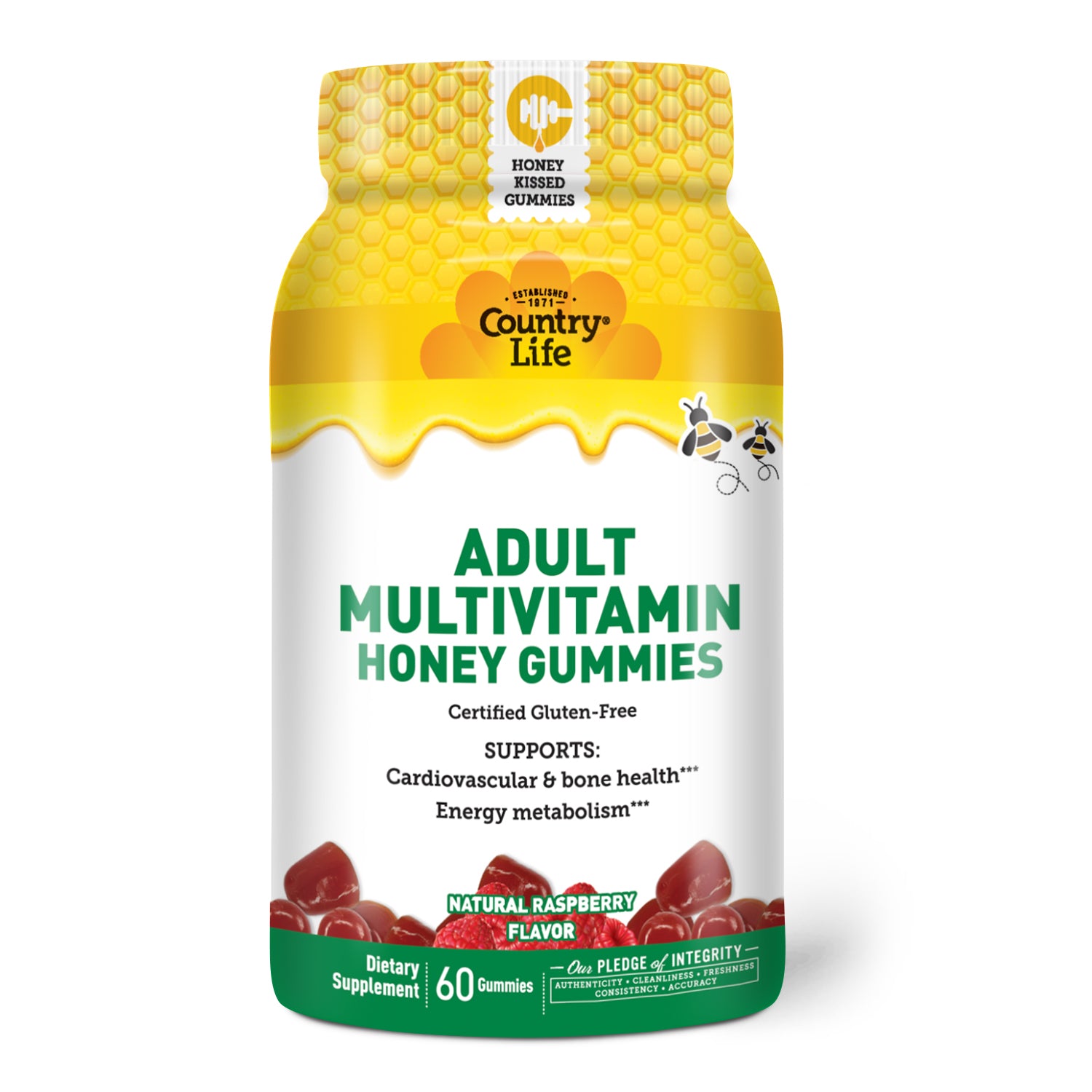
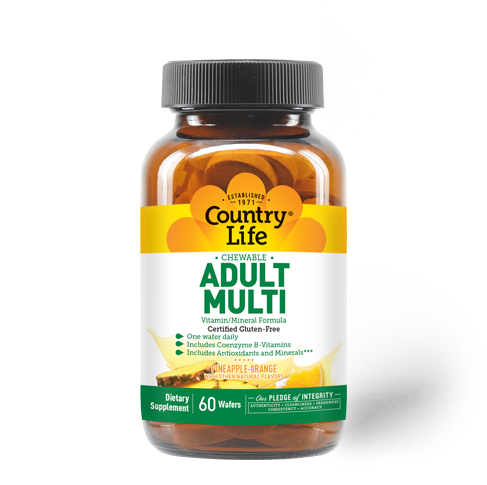
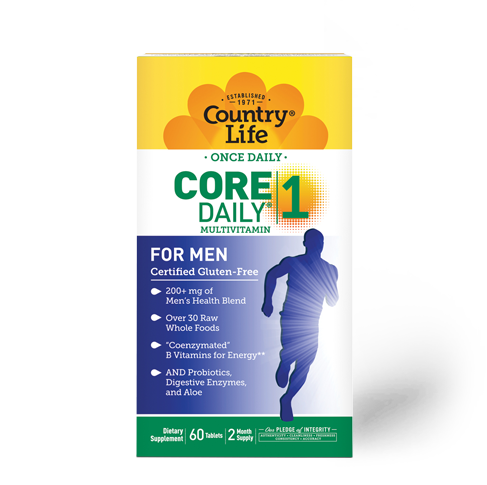
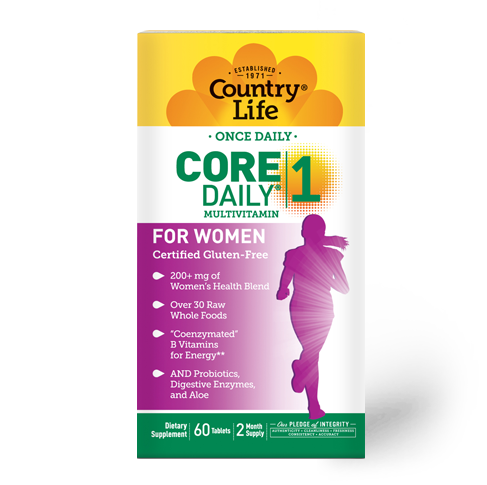
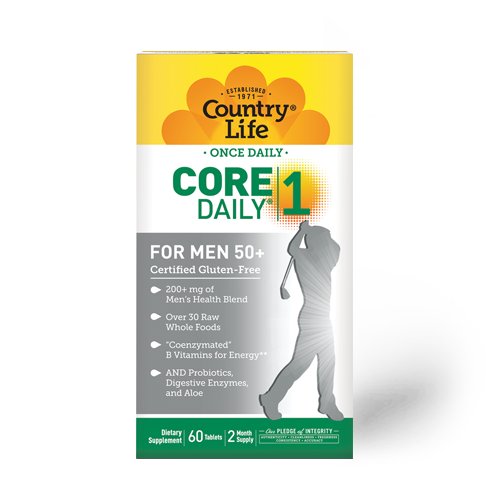
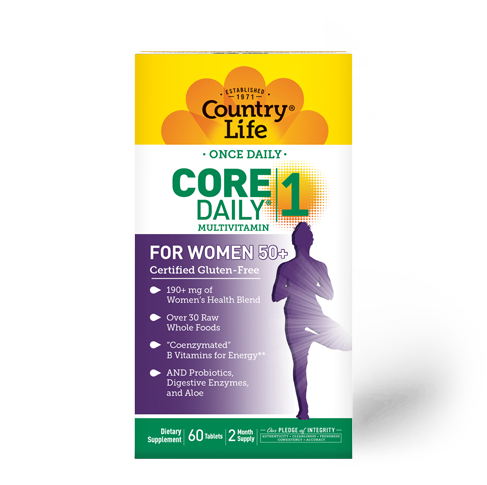
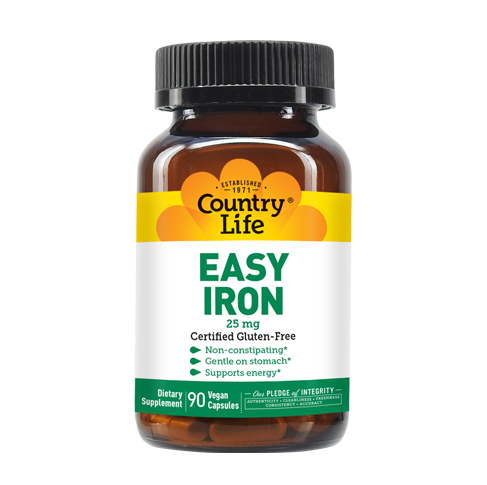
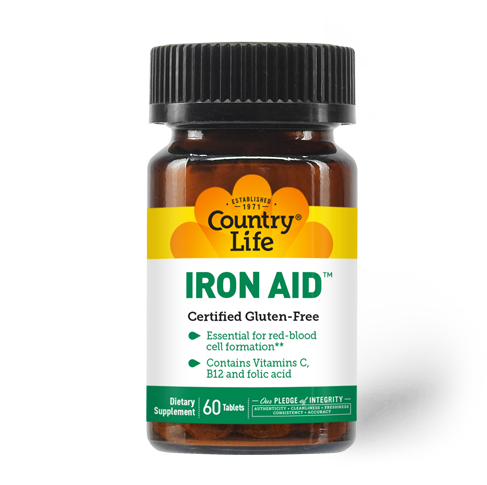










Share:
The Role of B-Vitamins in Stress Management Support
Hey Moms-to-Be! Check Out Our NEW Realfood Organics® Prenatal